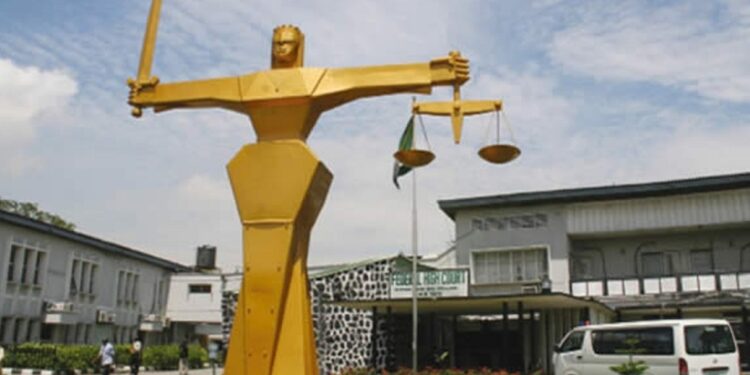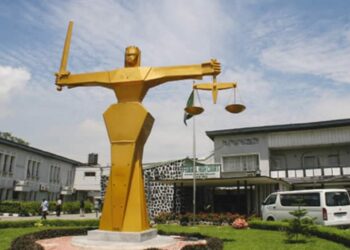The Central Bank of Nigeria (CBN) on Friday failed to convince the Court of Appeal in Abuja to dismiss a case seeking judicial review of records of total demonetized coins between 2017 and 2020.
The appeal, which the CBN opposed, was filed by a public interest civil society organization, Lawyers Network Against Corruption Ltd/GTE.
A three-man panel of the Court of Appeal overturned the Federal High Court’s judgment, which had previously struck out the applicant’s suit on the grounds of incompetence and failure to obtain leave to commence the suit.
What Transpired at the Court of Appeal
- The group’s lawyer, Mr. Ezenwa Anumnu, told the Court of Appeal that he had asked the lower court to declare that the applicant was entitled to be furnished with records of the physical stock of demonetized coins as of March 17, 2017, and July 8, 2020.
- He also sought an order for judicial review compelling the CBN to provide the requested information under Sections 1 and 2 of the Freedom of Information Act, 2011.
The information sought included:
- A record of total demonetized coins as of March 17, 2017.
- Records showing total demonetized coins as of July 2020.
- Details of distribution or disposal of the coins and the beneficiaries.
- Any other relevant correspondences.
- Adumnu argued that the CBN had made a public invitation in The Guardian newspaper in July 2016 for the sale of demonetized coins.
- Pursuant to this, the appellant requested information under the Freedom of Information Act on March 10, 2021, seeking details of the physical stock of the coins as of the date of publication and their distribution.
“It is mandatory under the Freedom of Information Act for the CBN to provide the requested information within seven days. However, the respondent failed to respond to the applicant’s request or grant access to the information sought,” he said.
- Adumnu further explained that he approached the trial court for several orders, but the lower court declined to entertain the suit and struck it out for incompetence.
- He urged the Court of Appeal to set aside the lower court’s decision.
CBN Reacts
- Opposing the appeal, CBN’s lawyer, Emeka Etiaba SAN, argued that it was inappropriate for the appellant to redefine the procedure for judicial review applications without regard for the established rules of the trial court.
- He submitted that the failure of the appellant to seek leave from the trial court rendered the suit baseless.
“The case constitutes an abuse of the court process, as it has been improperly used to vex, annoy, and embarrass the apex bank,” he added.
- He urged the Court of Appeal to strike out the appeal for incompetence or dismiss it for being an abuse of the court process and lacking merit.
What the Court of Appeal Said
Delivering judgment on the appeal, Justice Abang disagreed with the CBN and upheld the appellant’s argument that, under the Freedom of Information Act and in the instant case, the appellant does not require prior leave before applying for judicial review of a competent institution’s decision to withhold requested information.
“There is no condition precedent for the appellant to fulfill before applying to the court for judicial review of an institution’s decision refusing to release information,” he said.
Justice Abang added that imposing a requirement for prior leave would mean subjecting the appellant to a burden the statute had expressly removed.
He held that the lower court erred in striking out the suit.
“I find merit in this appeal, and the same is allowed. I also set aside the decision of the trial court,” Justice Abang held.
He referred the matter to the Chief Judge of the Federal High Court for reassignment to another judge.
What You Should Know
- The destruction of unfit banknotes in Nigeria is carried out by the CBN under strict security, as authorized by Section 18(d) of the CBN Act, 2007.
- The Act mandates the destruction of currency notes and coins withdrawn from circulation under Section 20(3) of the Act or otherwise deemed unfit for use by the bank.
- For instance, the CBN reportedly destroyed ₦698.48 million worth of unfit banknotes in 2020.
















